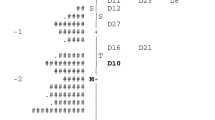Abstract
Risky driving has been one among the major causes of accidents on road. Motivation behind the study was to identify if emotional intelligence influences impetuous driving in highly congested roads. Volunteers answered a 4-point online survey of questions sampled from Indian license test, driving skill and behavior questionnaires. Cronbach alpha was acceptably high validating the questions. Spearman correlation values indicated a strong correlation between driving hours and driving skill and behavior. K-means clustering was used to cluster the subjects into 4 categories based on driving skill and driving behavior scores. The cluster with highest number of subjects consisted of people who drive every day with high risky driving scores. The results suggest that people who drive everyday have poor emotional intelligence which impedes a safe driving. The study proposes that educating drivers with emotional regulation could help in safer roads.
Access this chapter
Tax calculation will be finalised at checkout
Purchases are for personal use only
Similar content being viewed by others
References
Ministry of road transport & highways transport research wing, Road accidents in india – 2017, (Report to Government of India, 2017), New Delhi (2017)
Singh, S.K.: Road traffic accidents in India: issues and challenges. Transp. Res. Procedia 25, 4708–4719 (2017)
Martinussen, L.M., Møller, M., Prato, C.G.: Assessing the relationship between the driver behavior questionnaire and the driver skill inventory: revealing sub-groups of drivers. Transp. Res. Part F Traffic Psychol. Behav. 26, 82–91 (2014)
Hayley, A.C., de Ridder, B., Stough, C., Ford, T.C., Downey, L.A.: Emotional intelligence and risky driving behaviour in adults. Transp. Res. Part F Traffic Psychol. Behav. 49, 124–131 (2017)
Salovey, P., Mayer, J.D.: Emotional intelligence. Imagin. Cogn. Pers. 9(3), 185–211 (1989)
Gohm, C.L.: Mood regulation and emotional intelligence: individual differences. J. Pers. Soc. Psychol. 84(3), 594–607 (2003)
Cœugnet, S., Naveteur, J., Antoine, P., Anceaux, F.: Time pressure and driving: work, emotions and risks. Transp. Res. Part F Traffic Psychol. Behav. 20, 39–51 (2013)
Reason, J., Manstead, A., Stradling, S., Baxter, J., Campbell, K.: Errors and violations on the roads: a real distinction? Ergonomics 33(10–11), 1315–1332 (1990)
Lajunen, T., Summala, H.: Driving experience, personality, and skill and safety-motive dimensions in drivers’ self-assessments. Pers. Individ. Differ. 19(3), 307–318 (1995)
Wickens, C.M., Wiesenthal, D.L.: State driver stress as a function of occupational stress, traffic congestion, and trait stress susceptibility. J. Appl. Biobehav. Res. 10(2), 83–97 (2005)
Jessor, R., Turbin, M.S., Costa, F.M.: Predicting developmental change in risky driving: the transition to young adulthood. Appl. Dev. Sci. 1(1), 4–16 (1997)
McGwin Jr., G., Brown, D.B.: Characteristics of traffic crashes among young, middle-aged, and older drivers. Accid. Anal. Prev. 31(3), 181–198 (1999)
De Winter, J.C.F., Dodou, D.: The driver behaviour questionnaire as a predictor of accidents: a meta-analysis. J. Saf. Res. 41(6), 463–470 (2010)
Bandura, A.: Self-efficacy: toward a unifying theory of behavioral change. Psychol. Rev. 84(2), 191–215 (1977)
Hatakka, M., Keskinen, E., Gregersen, N.P., Glad, A., Hernetkoski, K.: From control of the vehicle to personal self-control; broadening the perspectives to driver education. Transp. Res. Part F Traffic Psychol. Behav. 5(3), 201–215 (2002)
Wozniak, R.L.: Risky sexual behaviors in adolescence: their relationship to social-emotional intelligence. Doctoral dissertation, Alfred University, Alfred, NY (2013)
Author information
Authors and Affiliations
Corresponding author
Editor information
Editors and Affiliations
Rights and permissions
Copyright information
© 2020 Springer Nature Switzerland AG
About this paper
Cite this paper
Parameswaran, S., Balasubramanian, V. (2020). Assessing the Relation Between Emotional Intelligence and Driving Behavior: An Online Survey. In: Stanton, N. (eds) Advances in Human Factors of Transportation. AHFE 2019. Advances in Intelligent Systems and Computing, vol 964. Springer, Cham. https://doi.org/10.1007/978-3-030-20503-4_21
Download citation
DOI: https://doi.org/10.1007/978-3-030-20503-4_21
Published:
Publisher Name: Springer, Cham
Print ISBN: 978-3-030-20502-7
Online ISBN: 978-3-030-20503-4
eBook Packages: EngineeringEngineering (R0)




